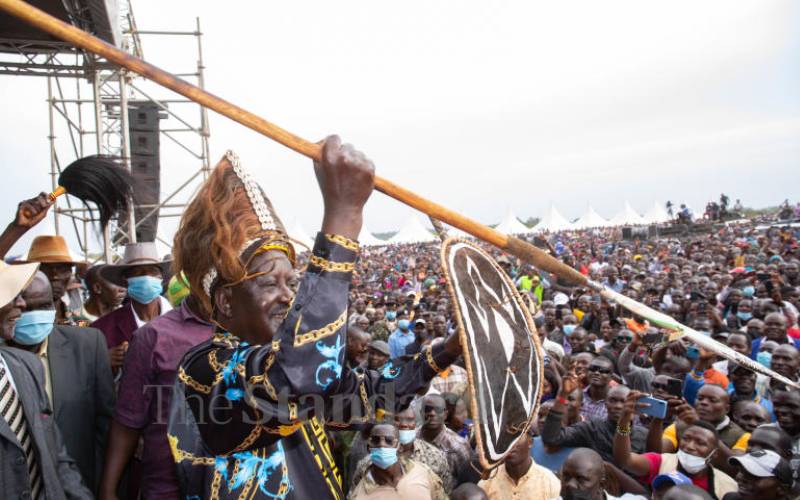×
The Standard e-Paper
Smart Minds Choose Us

ODM leader Raila Odinga in Ndhiwa, Homabay County, January 22, 2022. [Emmanuel Wanson, Standard]
Over the last few days, the United Democratic Alliance, under the stewardship of Deputy President William Ruto, has been on a concerted and overzealous campaign to paint ODM leader Raila Odinga as a State project in his quest to succeed President Uhuru Kenyatta.